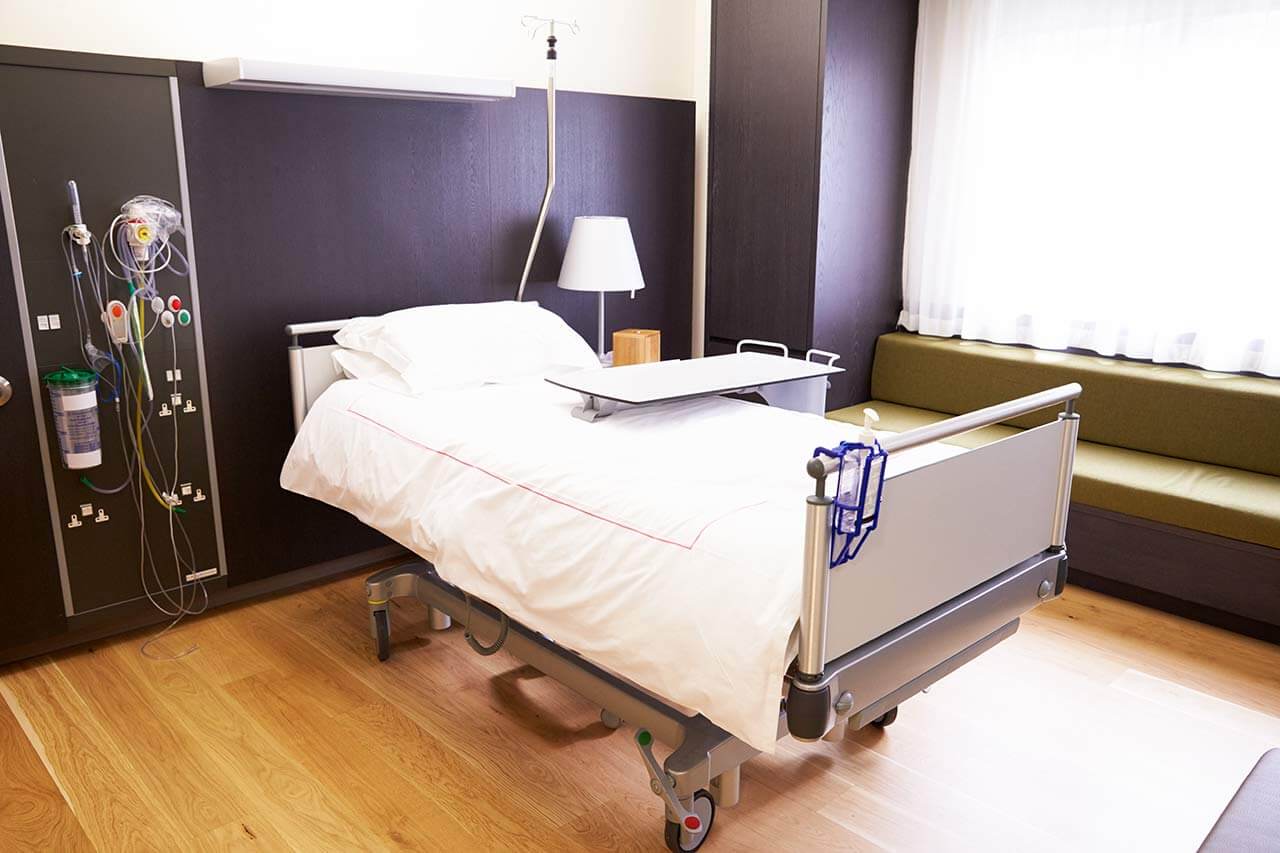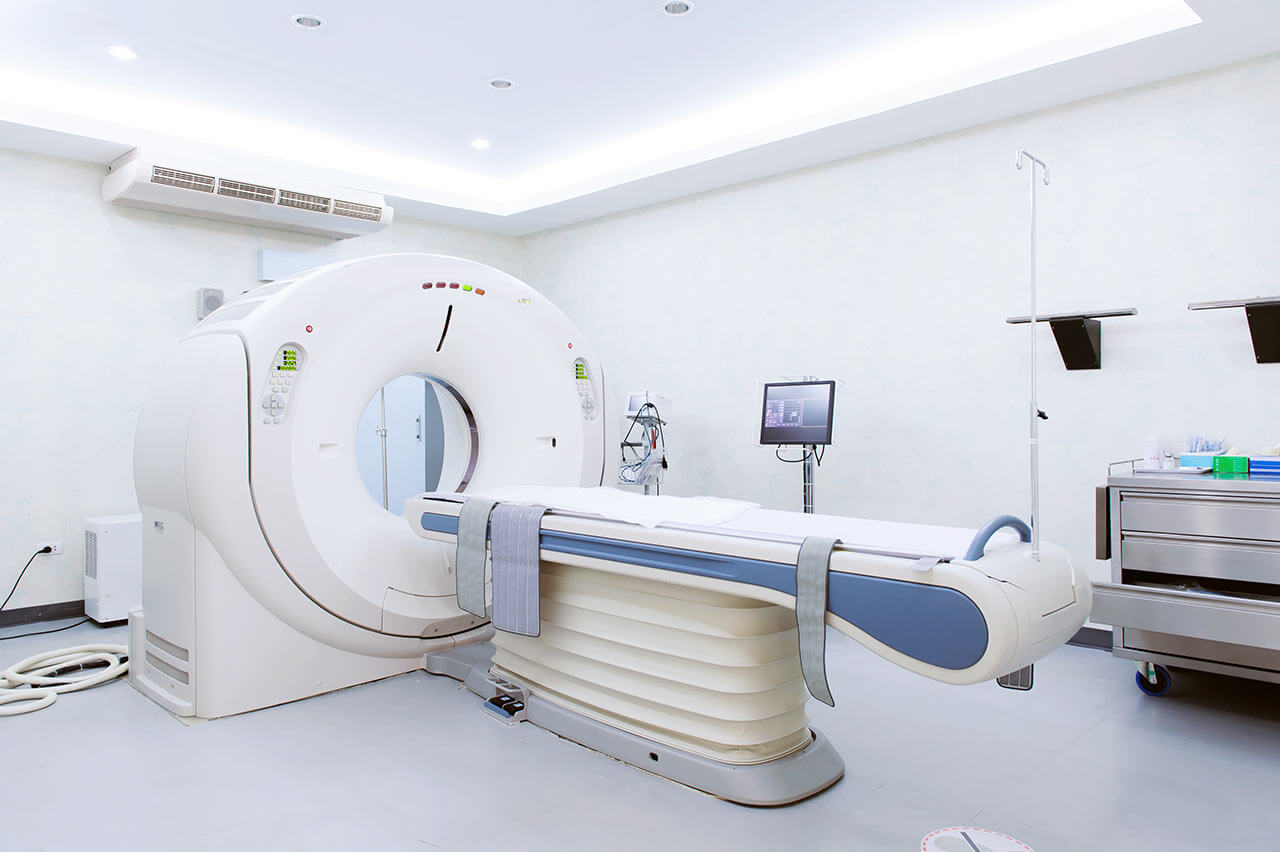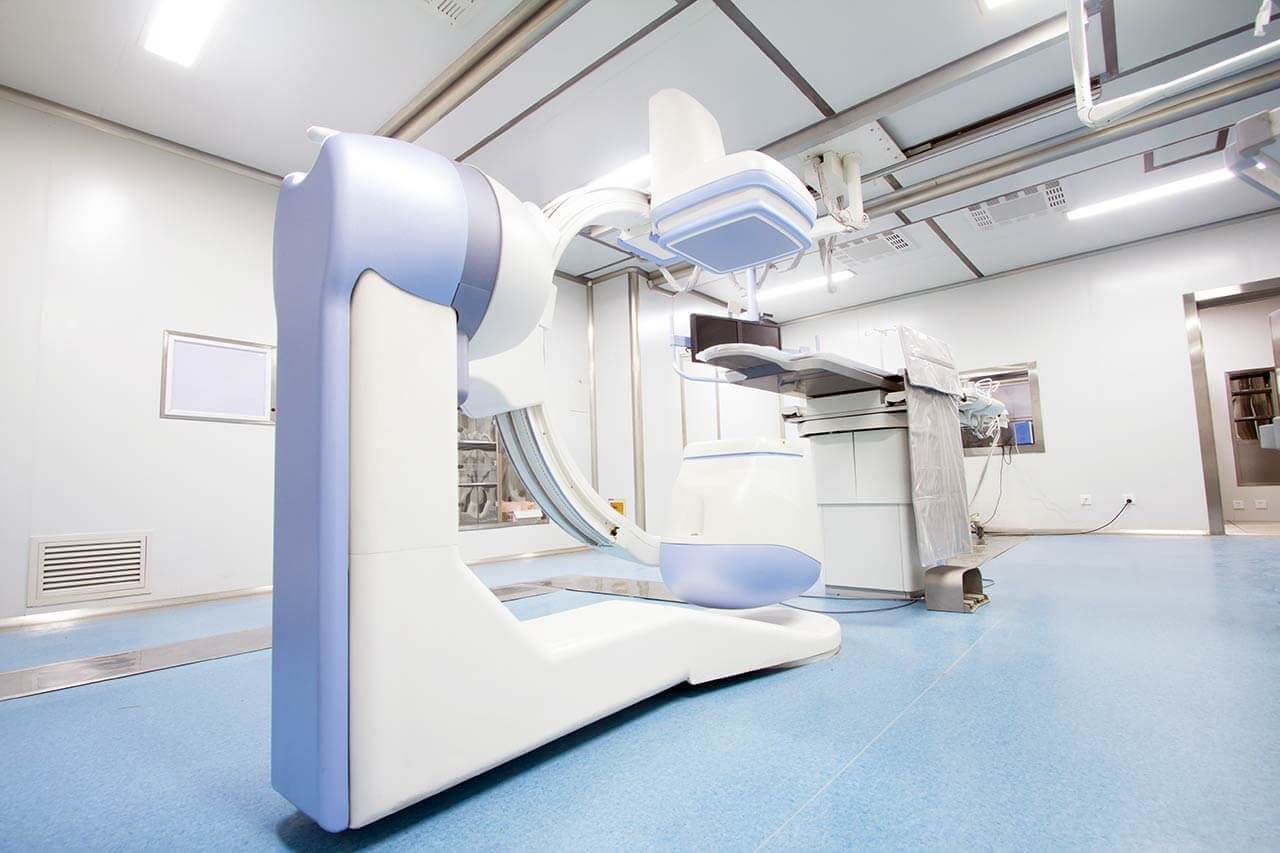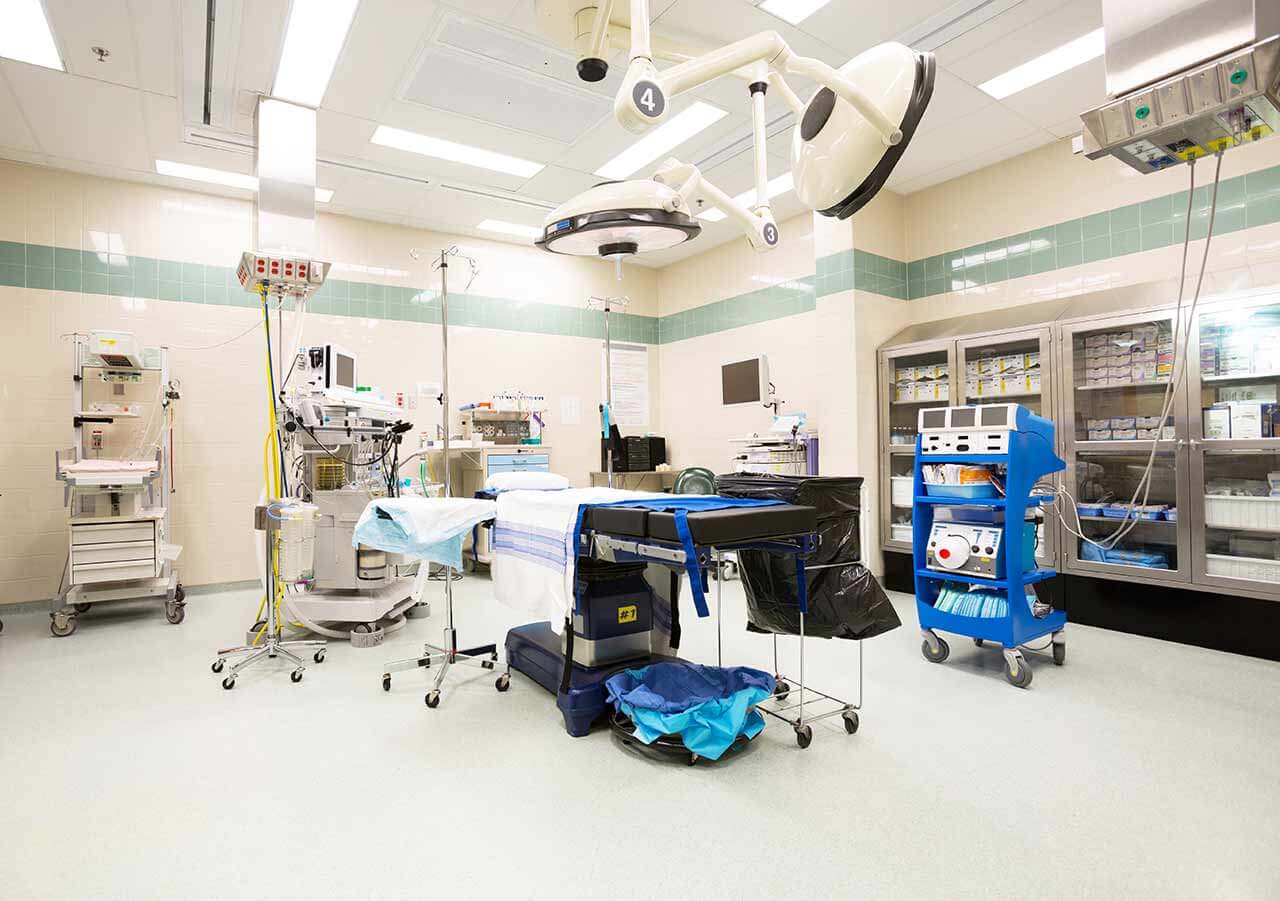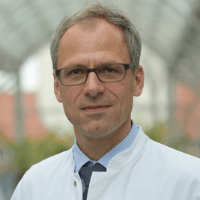
The program includes:
- Initial presentation in the clinic
- clinical history taking
- review of medical records
- physical examination
- laboratory tests:
- complete blood count
- biochemical blood test
- inflammation markers (CRP, ESR)
- blood coagulation analysis (aPTT, PT, INR)
- ultrasound of the abdomen
- gastroscopy with H.pylori test, biopsy
- nursing services
- consultation of related specialists
- treatment by chief physician and all leading experts
- explanation of individual treatment plan
Required documents
- Medical records
- Esophagogastroduodenoscopy (EGD) (if available)
Service
You may also book:
 BookingHealth Price from:
BookingHealth Price from:
About the department
The Department of Pediatric Gastroenterology, Hepatology and Metabolic Disorders at the Charite University Hospital Berlin provides a full range of medical services within its fields of expertise. The department's team of physicians treats young patients with diseases of the gastrointestinal tract, liver, and metabolic disorders, with a special emphasis on managing chronic and rare conditions of the digestive system. Clinical practice includes pediatric consultations, laboratory and ultrasound diagnostics, endoscopic examinations, and conservative treatment. The department is integrated into the liver transplantation program at Charite University Hospital Berlin, enabling specialists to prepare children for liver transplantation surgery and provide comprehensive post-operative care. The medical team works closely with pediatric surgeons, oncologists, cardiologists, rheumatologists, immunologists, and other experts to provide interdisciplinary care for each child. Treatment is delivered on both an inpatient and outpatient basis. The department's physicians utilize many modern evidence-based methodologies that are designed to fully restore the health of young patients. The department is headed by Prof. Dr. med. Philip Bufler.
The department's physicians specialize in treating young patients with chronic inflammatory bowel diseases (IBD) – Crohn's disease and ulcerative colitis. In many cases, these conditions develop due to a rare immunodeficiency disorder, which pediatric gastroenterologists identify through comprehensive immunological diagnostics. The treatment plan for a child with IBD is developed on an individualized basis. It typically includes the administration of various medication classes: anti-inflammatory drugs, immunomodulators, enzyme preparations, probiotics, and antibiotics. Nutritional therapy is also an integral component of treatment. In complex clinical cases, endoscopic intervention or open surgery may be required.
In the field of gastroenterology, the clinic's physicians have accumulated extensive experience in treating children with short bowel syndrome, celiac disease, disorders of gastric, esophageal and intestinal motility, gastroesophageal reflux disease, food intolerances, and congenital malformations of the gastrointestinal tract. Treatment is conducted in close cooperation with the clinic's pediatric surgeons.
The area of pediatric hepatology deserves special attention. Specialists in this field provide comprehensive treatment for diseases of the liver, gallbladder, and biliary tract. The medical team focuses on young patients with hepatitis B and C, autoimmune hepatitis, congenital malformations of the bile ducts, Wilson's disease, and other conditions. For each child, an optimal medication regimen is developed, taking into account the specific diagnosis, age, and general condition. The department also provides professional care for young patients before and after liver transplantation – the clinic is a partner in the Charite Clinic's liver transplantation program, which has earned a high reputation in the European healthcare system for its outstanding results.
Another area of expertise within the department is the diagnosis and treatment of metabolic disorders: phenylketonuria, maple syrup urine disease, organic acidurias, glycogen storage diseases, fatty acid oxidation defects (MCADD, VLCADD, LCHADD, MADD), lysosomal storage diseases, and others. The clinic is among the few medical centers in the world with extensive experience in treating rare metabolic disorders in children. Young patients with such disorders receive comprehensive care within the department's specialized outpatient clinic.
Key areas of specialization in the department include:
- Gastroenterology
- Diagnostics and treatment of inflammatory bowel diseases: Crohn's disease and ulcerative colitis
- Diagnostics and treatment of short bowel syndrome
- Diagnostics and treatment of celiac disease
- Diagnostics and treatment of gastric, esophageal, and intestinal motility disorders
- Diagnostics and treatment of gastroesophageal reflux disease
- Diagnostics and treatment of food intolerances
- Diagnostics and treatment of congenital malformations of the gastrointestinal tract
- Hepatology
- Diagnostics and treatment of hepatitis B and C
- Diagnostics and treatment of autoimmune hepatitis
- Diagnostics and treatment of congenital malformations of the bile ducts
- Diagnostics and treatment of Wilson's disease
- Metabolic disorders
- Diagnostics and treatment of amino acid metabolism disorders: phenylketonuria, tyrosinemia, maple syrup urine disease, urea cycle disorders, glycine encephalopathy
- Diagnostics and treatment of organic acidurias: methylmalonic aciduria, propionic aciduria, glutaric aciduria type I
- Diagnostics and treatment of carbohydrate metabolism disorders: glycogen storage diseases, galactosemia
- Diagnostics and treatment of energy metabolism disorders: fatty acid oxidation defects, carnitine metabolism disorders, ketolysis defects, mitochondriopathies
- Diagnostics and treatment of vitamin metabolism disorders
- Diagnostics and treatment of lysosomal storage diseases: mucopolysaccharidosis, Pompe disease, Fabry disease, Gaucher disease, Niemann-Pick disease subtypes
- Diagnostics and treatment of cholesterol biosynthesis defects: Smith-Lemli-Opitz syndrome
- Diagnostics and treatment of purine and pyrimidine metabolism disorders
- Other diseases
The range of medical services provided by the department includes:
- Diagnostics
- Comprehensive laboratory diagnostics
- Ultrasound diagnostics
- Functional diagnostics of the gastrointestinal tract
- Esophageal pH-impedance monitoring
- Hydrogen breath test with fructose
- Hydrogen breath test with glucose
- Hydrogen breath test with lactose
- Hydrogen breath test with lactulose
- 13C-urea breath test
- Endoscopic diagnostics
- Gastroscopy
- Colonoscopy
- Gastric, intestinal, and liver biopsy
- Treatment
- Drug therapy
- Endoscopic therapeutic procedures
- Installation of PEG and PEJ feeding tubes
- Balloon dilation and bougiеnage to eliminate stenoses in the upper and lower gastrointestinal tract
- Endoscopic removal of gastric and intestinal polyps
- Latex ligation for the treatment of esophageal varices
- Comprehensive care before and after liver transplantation
- Other medical services
Curriculum vitae
Education and Professional Career
- Study of Medicine at Ludwig Maximilian University of Munich.
- Work in the Department of Pediatric Allergology, Pulmonology and Neonatology.
- Research Internship in Denver, Colorado (2,5 years).
- 2005 Board certification in Pediatric and Adolescent Medicine.
- Professional training in Gastroenterology.
- Since 2007 Senior Physician in the Department of Pediatric Hepatology at the Dr. von Hauner Children's Hospital, as well as the Deputy Head of the Department of Pediatric Gastroenterology at the same hospital.
- Since 2013 Active participation in the development and coordination of the Pediatric Liver Transplant Program, Ludwig Maximilian University of Munich.
- Since October 1, 2017 Head of the Department of Pediatric Gastroenterology and Metabolic Disorders at the Charite University Hospital Berlin.
Photo of the doctor: (c) Charité – Universitätsmedizin Berlin
About hospital
According to the reputable Focus magazine, the Charite University Hospital Berlin ranks 1st among the best healthcare facilities in Germany!
The hospital is one of the largest and leading university medical complexes in Europe, and also consistently holds leading positions in the international medical arena. The Charite operates on the basis of the Faculty of Medicine of the Free University of Berlin and the Humboldt University of Berlin. Patients are offered modern diagnostics and treatment with the very latest methods, many of which were developed by professors and scientists of the medical complex. More than half of all German Nobel Prize winners in medicine and physiology, such as Emil von Behring, Robert Koch, and Paul Ehrlich, studied and worked at the Charite University Hospital Berlin. The medical complex includes more than 100 specialized departments and institutes, which helps to ensure that patients receive care in all existing medical specialties. The hospital has exceptional experience in treating complex clinical cases.
Each year, the hospital treats more than 137,800 inpatients and more than 787,700 outpatients. The hospital has a bed capacity of 3,293 beds. A huge medical team consisting of 5,670 scientists and doctors and more than 6,000 nurses work for the benefit of the patients. The main task of all specialists of the medical facility is to restore the patient's health or save his life in critical cases. The hospital has a friendly atmosphere where every patient feels care, respect and empathy.
The Charite University Hospital Berlin is generously funded by the German government, which is why it offers patients the latest generation of excellent equipment and comfortable infrastructure. The Charite medical complex is equipped with da Vinci robotic surgery systems, laser technologies, equipment for endovascular catheter-based interventions, neuronavigation devices, intraoperative monitoring systems, equipment for proton therapy available only in the most advanced medical centers in the world, and many other technologies. All these resources, combined with the experience and professional skills of the hospital's doctors, are the key to providing the most effective and safe treatment in accordance with the highest international medical standards.
The hospital is recognized with a huge number of quality certificates, including DIN EN ISO 9001:2015, certificates from the German Cancer Society (DKG), the German Society for General and Visceral Surgery (DGAV), the German Society for Thoracic Surgery (DGT), the German Hernia Society (DHG), and the ERAS Society.
The Charite University Hospital Berlin is a benchmark in the European healthcare system. Patients therefore receive impeccable medical service, quality care, and personalized service that puts the patient and their individual needs first.
Photo: (с) depositphotos
Accommodation in hospital
Patients rooms
The patients of the Charite University Hospital Berlin live in comfortable rooms made of modern design. Each room is equipped with an ensuite bathroom with a toilet and a shower. The standard room furnishing includes an automatically adjustable bed, a bedside table, a wardrobe for storing clothes, a table and chairs for receiving visitors, and a TV. If desired, Wi-Fi access can be provided. The hospital also offers enhanced-comfort rooms.
Meals and Menus
The patient and his accompanying person have a daily choice of three menus. If for any reason, you do not like the food, you will be offered an individual menu. Please inform the medical staff about your dietary preferences before the treatment.
Further details
Standard rooms include:
Religion
Religious services are available upon request.
Accompanying person
During the inpatient program, an accompanying person may stay with you in a patient room or at the hotel of your choice.
Hotel
During the outpatient program, you can live at a hotel of your choice. Managers will help you to choose the most suitable options.
The hospital offers a full range of laboratory tests (general, hormonal, tests for infections, antibodies, tumor markers, etc.), genetic tests, various modifications of ultrasound scans, CT scans, MRI and PET / CT, angiography, myelography, biopsy and other examinations. Treatment with medications, endoscopic and robotic operations, stereotaxic interventions is carried out here, modern types of radiation therapy are also used. The hospital offers patients all the necessary therapeutic techniques.
- Proton therapy
- CyberKnife treatment
- Hyperthermic intraperitoneal chemotherapy (HIPEC)
- PSMA therapy with Lutetium-177
- Joint replacement in adults and children
These are oncological diseases, benign neoplasms of the brain and spinal cord, heart valve defects, diabetes mellitus and its complications, joint diseases and other pathologies.
- Neurosurgery
- Oncology
- Plastic and reconstructive surgery
- Interventional radiology
- Proton therapy (Proton Therapy Center BerlinProtonen)
The medical team includes more than 4,225 highly qualified scientists and doctors.
